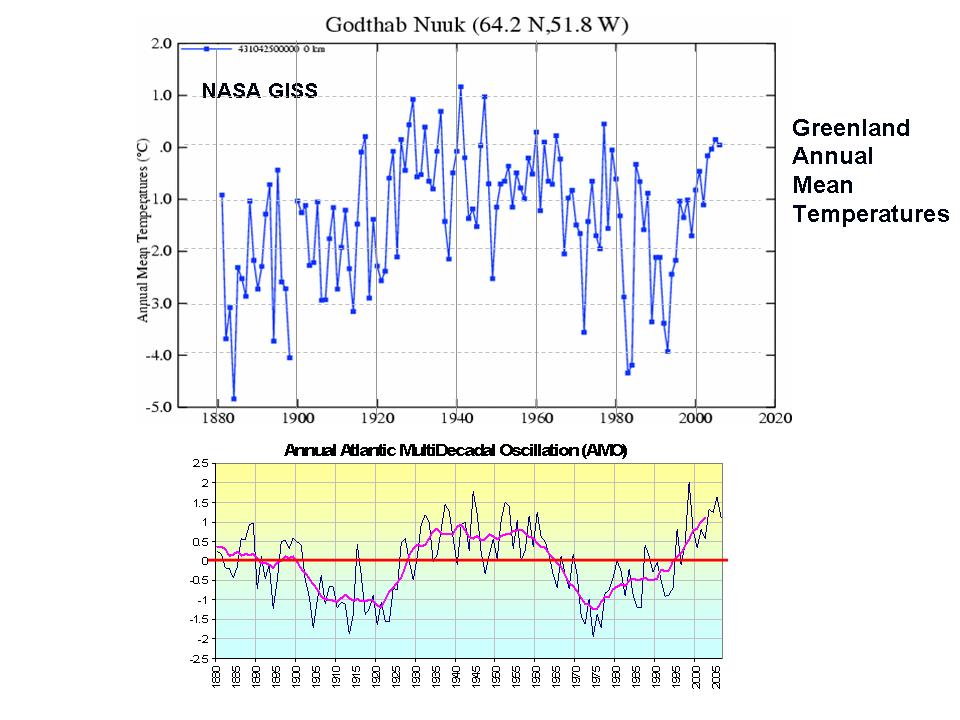By Agence France-Presse, 10 November 2007
Fresh from winning the Nobel Peace Prize, the UN’s top scientific panel on climate change will meet in the Spanish port city of Valencia Monday to finalize a landmark report on global warming and how to avoid its worst ravages. But beneath its newly-won fame, the Intergovernmental Panel on Climate Change (IPCC) is under intensifying scrutiny about some of its key processes.
Some voices, including from within the IPCC itself, fear the panel’s grand report will be badly out of date before it is even printed. Others quietly criticize the organization as being too conservative in its appreciation of the climate threat. The more forceful the panel’s conclusions, the more pressure it will put on policymakers to adopt measures—some of them politically costly—ranging from carbon taxes and mandatory caps on CO2 emissions to massive investment in renewable energy. Read more here.
Icecap Reality Check: The alarmists point to the shrinkage of the Arctic ice cap, glacier loss in Greenland, a surge in levels of atmospheric carbon dioxide (CO2) and an apparent slowing of Earth’s ability to absorb greenhouse gases, all of which are either false or can be explained by natural variability. Temperatures for example in Greenland declined from the 1950s to the late 1990s (while CO2 increased) and then rose in the last decade when the Atlantic warmed in its multidecadal cycle. Temperatures are still not as warm as the 1930-1940s there and the ice has been growing over much of the continent and only melting along the edges near the warmer water.

Greenland Annual Mean Temperatures at Godthab Nuuk compared to the Atlantic Multidecadal Cycle of Ocean Temperatures.
As for the arctic, NASA and the National Snow and Ice Data Center talked about an unusual weather pattern and flux of warm water from the Pacific and Atlantic as reasons for the decline in Arctic ice. A similar decline occurred in the 1930s and 1940s when the major oceans were last in their warm modes. The increase in anthgropogenic carbon dioxide has not led to any acceleration of atmospheric carbon dioxide as measured at Mauna Loa. The oceans control the carbon dioxide content (and the temperature of the air and oceans lead and not lag carbon dioxide). The colder oceans are serving as a buffer for the increased carbon dioxide output (see new study supporting this here). Given the ice free sections of the arctic last summer and low salinity and cold water from the melting of the record Antarctic ice coverage this past year, more absorption of carbon dioxide might be expected and the rate of increase may decline this year especially given the La Nina which means colder tropical water and less outgassing there.
By John McLean on SPPI
The common perception of the Intergovernmental Panel on Climate Change (IPCC) is tone of an impartial organization that thoroughly reviews the state of climate science and produces reports which are clear, accurate, comprehensive, well substantiated and without bias. One only needs examine some of its procedural documents, its reports and its dealings with reviewers of the report drafts to discover how wrong this impression is. The IPCC is not and never has been an organization that examines all aspects of climate change in a neutral and impartial manner. Its internal procedures reinforce that bias; it makes no attempts to clarify its misleading and ambiguous statements. It is very selective about the material included in its reports; its fundamental claims lack evidence. And most importantly, its actions have skewed the entire field of climate science.
Over the last 20 years and despite its dominance and manipulation of climate science, the IPCC has failed to provide concrete evidence of a significant human influence on climate. It’s time to call a halt to its activities and here are ten reasons for doing so.
By David Holland, Energy and Environment
The climatic “hockey stick” hypothesis has systemic problems. I review how the IPCC came to adopt the “hockey stick” as scientific evidence of human
interference with the climate. I report also on independent peer reviewed studies of the “hockey stick” that were instigated by the US House of Representatives in 2006, and which comprehensively invalidated it. The “divergence” problem and the selective and unreliable nature of tree ring reconstructions are discussed, as is the unsatisfactory review process of the IPCC Fourth Assessment Report that ignored the invalidation of the “hockey stick”. The error found recently in the
GISS temperature series is also noted. It is concluded that the IPCC has neither the structure nor the necessary independence and supervision of its processes to be acceptable as the monopoly authority on climate science. Suggestions are made as to how the IPCC could improve its procedures towards producing reports and recommendations that are more scientifically sound. Read more here.


